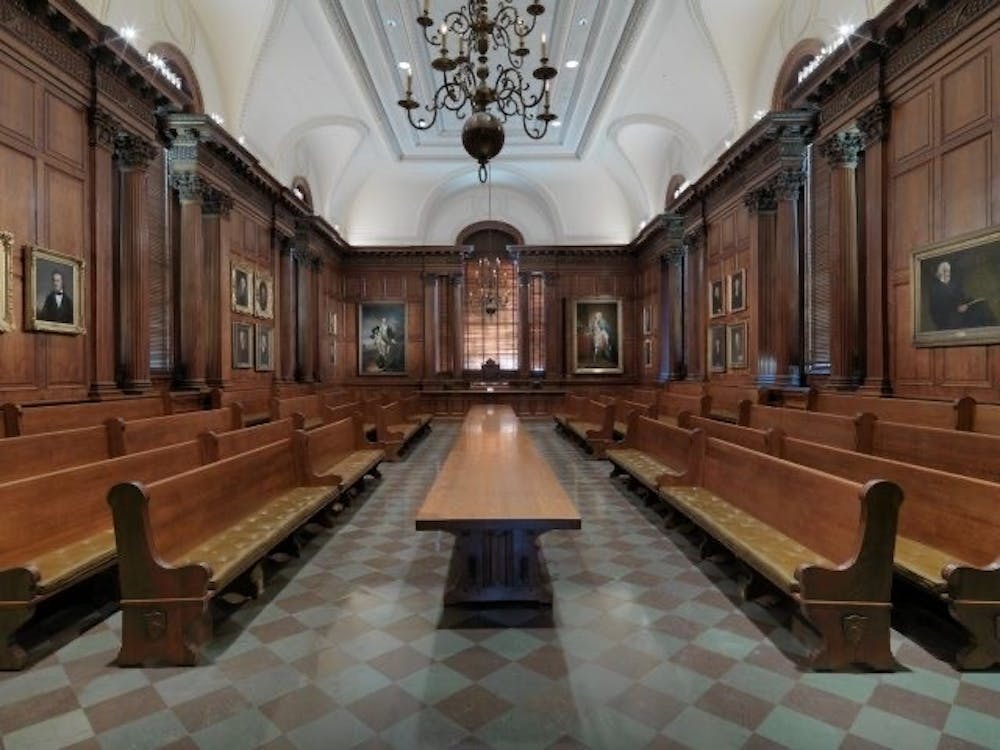I’m running for Young Alumni Trustee (YAT). For those unfamiliar, the YAT is a senior elected by members of the junior and senior classes, as well as the two most recent graduating classes, who joins the University’s Board of Trustees as a member for four years. The YAT has all the same powers as the other trustee members, responsible for managing the University’s funds, planning, endowment, and governance. I would love to tell you why I think I’m qualified to be this year’s YAT and what I would advocate for as a trustee so you can make an informed decision when you vote. Unfortunately, I’m not allowed to.
YAT candidates are strictly prohibited from any kind of campaigning. Why does the University have such an odd rule? Well, according to them, “Trustees who arrive on the board having already staked out positions on issues without access to full information can undermine both the workings of the board and their own effectiveness if they are perceived as beholden to a position.”
The University is intent on making the YAT, and each member of the Board of Trustees in general, appear as a purely technocratic blank slate that governs us devoid of any discernible agendas, priorities, or political leanings. “Partisanship detracts from this sense of shared responsibility and thus is detrimental in both the election process and participation in the board,” the University says. Yet the notion that politics and ideology have nothing to do with University policy is nonsense.
Every decision the trustees make, from where they invest the University’s money to the construction projects they approve, is political and ideological, whether the trustees are aware of it or not. Investing in a given fund or company supports their operations and is thus an implicit endorsement of that company’s practices, department funding conveys how important the University believes certain subjects are, and so on. Furthermore, the Board of Trustees oversees an institution that impacts the lives of thousands of people every day and governs an endowment that exceeds the wealth of some countries.
Another excuse the University employs is that their campaign restriction serves as an equalizer among the candidates, preventing a kind of campaign arms race that could potentially overwhelm seniors with postering and speeches, especially as they work on their senior theses. Of course, the University could easily solve this problem by regulating campaigning, either through restricting it to one debate or campaign statements, or creating a designated area for posters. Instead, they’ve chosen to hide behind an unconvincing concern for student well-being as a means of limiting our right to speak.
So why is the University so concerned about the YAT position being seen as apolitical, so much so that they have outlawed campaigning? I can’t claim to know for sure, but the University appears to be afraid of what might happen if students could campaign on serious issues. Perhaps someone with unconventional or even radical ideas for what the University ought to be doing with its resources and influence might be elected. It’s much safer, from the University’s perspective, to restrain any potential debate in this election and turn it into a popularity contest, in which the students with pre-existing name recognition have the advantage.
We then end up electing a YAT based on who their friends are, what clubs they’re in, or simply by guessing what the candidates will do as trustees based on the little we know about them, instead of anything substantive. No wonder turnout rates for this race have been abysmal in the past. Students clearly understand that without a campaign, this election is a farce.
For a University with a purported commitment to free speech and democracy, this is highly hypocritical. Apparently, Princeton values freedom of expression and democratic accountability only in purely theoretical, academic settings. When the finances and governance of the University are at stake, as it is in this election, Princeton shows its authoritarian side. University community members, especially students, alumni, and professors who are concerned with the state of free speech rights on campus, ought to be outraged by this.

I suspect the University might disqualify me from YAT candidacy after publishing this article, though I did take care not to engage in any actual campaigning in this piece. Nonetheless, my disqualification would only further confirm my argument that the administration is afraid of what a real campaign focused on issues might yield. Perhaps there will even be a polite reply from the University in the Opinion section of The Daily Princetonian in the coming days, likely repeating the same talking points about the importance of apolitical elections that I have already quoted. I encourage readers not to be such easy marks. This is censorship, plain and simple, designed to shut down the robust, passionate debate we should be having about the future of this institution—and the future of higher education—before it even begins.
Of course, I sincerely hope this does not happen, and that the University not only leaves me on the ballot, but allows all candidates to campaign. Even if the restrictions aren’t lifted, I would encourage whichever candidates advance to the final round to find some courage this year and hold a debate, whether the school approves of it or not. Only then do we have a chance of electing a YAT that accurately represents a majority of students’ views.
Ben Gelman is a senior from Houston, Texas concentrating in Politics. He can be reached at bgelman@princeton.edu.









